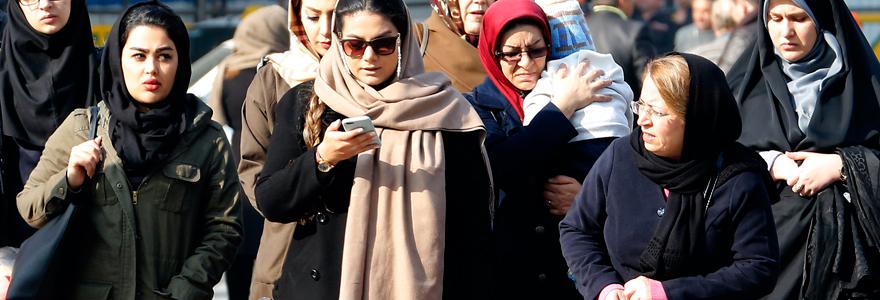
Sharia Law treats citizens differently depending on their gender. The law in Iran and the other Islamic republics has not treated women equally in politics, crime and punishment, women in Iran are discriminated against under the law, which does not treat them equally like their male counterparts. This has resulted in some Iranian women having empathy, compassion and solidarity with other women who face discrimination regarding marriages, divorce, custody, criminal cases and inheritance.
In the last century, Iranian women have been working for change to fight for their rights and freedom. Despite the current obstacles with organisations, unity, and common purpose, these women can change the future.
Women have been activists fighting for women's rights in Iran for a long time. Discrimination has forced many women activists to change and fight for more leadership rights. For example, Iranian women cannot acquire a passport to travel out of the country without written permission from their husbands. However, these women activists get harassed, interrogated, detained and imprisoned for fighting for women's rights. Some of these activists are prohibited from travelling abroad since they assume that they will collaborate with foreign powers to overthrow the government.
Iranians traditional systems denied women their rights. So, these traditions still govern the Iranian society up to date, where a woman's life is regarded half as that of a man.
Discrimination of Women in Iran
Iranian women have suffered under a system of discrimination and inequality. In domestic cases, men are always considered heads of the family with legal authority over their wives. In human rights, women are discriminated against at all levels.
They are unlikely to obtain jobs that require them to travel since they must get permission from their husbands. They are also excluded from entry into specific fields of study.
They also lack safety in that they are vulnerable to violence and harassment. Those who seem not to follow laws are physically punished or killed by other male family members. In Iran, domestic violence or fighting women is not a crime. It is generally viewed as a private family matter. Generally, women and girls are treated as second-class citizens and always receive harsher punishments than men for their crimes.
Gender Politics of Iran in the Past
Gender politic talks about the roles and relations of men and women. Feminism literature and Islamic culture show that there was a conflict between identity groups in Iran.
Some research found that for these conflicts to be solved and for the feminists to reunite, they should apply several communicative principles of democracy. In the recent past, the Islamic region has found a way to solve these conflicts. In the past, Iranian women were not allowed to participate in any government's seat.
However, gender politics has recently been upraised in this Islamic republic.
Gender Politics in Iran in Recent Days
Iranian women's rights and legal status have changed since the early 20th century. The past three government systems have been at the forefront of fighting for women's rights in the political sector. There have been significant changes towards women's rights to hold public offices.
The Islamic Republic of Iran has established the possibility of women becoming leaders in the highest levels of the government. According to analysis, this can trigger a strong voter turnout and lead to more reforms in the country. Women have also been allowed to run for the top seat, the presidency seat, in 2021.
Conclusion
Iranian women have been denied many rights and are heavily punished compared to men for their mistakes or crimes. In politics, they have recently been allowed to take part even in the top political seats by the recent governments.